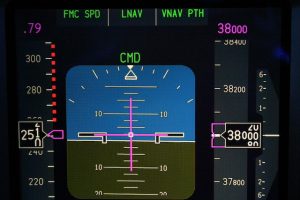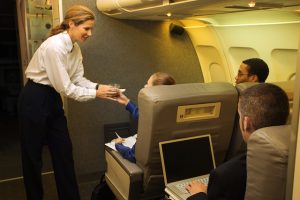Facebook Jobs Are Not Ideal For The Airline Industry
 Many pilots and engineers search online for jobs. Some explore Facebook jobs as a fast solution. This method feels easy and free. However, it creates more confusion than clarity. Serious aviation professionals need stronger tools. Facebook jobs often fail to meet industry standards. The risks are not always clear.
Many pilots and engineers search online for jobs. Some explore Facebook jobs as a fast solution. This method feels easy and free. However, it creates more confusion than clarity. Serious aviation professionals need stronger tools. Facebook jobs often fail to meet industry standards. The risks are not always clear.
Facebooks are not verified
Facebook jobs allow anyone to post listings. This includes businesses with no history. Airlines need verified channels. Trust builds through official portals. On Facebook, fake companies can publish job ads. These ads often trick users with false promises. Verification matters for safety. Facebook does not always check the company background. Anyone can use a logo or fake title. This opens the door to scams. Airline careers demand trusted job boards.
Too much informal communication
Professional jobs require clear communication. Facebook mixes business with personal messaging. This creates confusion during job talks. Airline recruiters need formal methods. Messenger lacks structure. Comments and private replies cause delays. In aviation, time matters. Missing a message can delay a chance. Emails and portals send alerts. Facebook may bury job messages in chat threads. This causes missed replies and unclear discussions.
No standard job format
Airline jobs need detailed job descriptions. Facebook Jobs posts often skip key data. Many lack salary ranges, benefits, or job requirements. Others fail to list contract terms or base locations. This causes waste of time. Applicants reply without full details. Recruiters receive messages from unqualified people. Strong job boards include filters and forms. Facebook uses a blank canvas instead.
Lack of industry filters
Aviation needs filters for license, hours, and aircraft type. Facebook does not offer these. Jobs appear mixed with unrelated ads. Pilots see ads for ground staff. Engineers find jobs outside aviation. Searching becomes slow and random. Time lost means fewer real leads. Job platforms with filters save energy. Facebook creates too many steps. Qualified professionals seek tools that respect their time.
No tracking tools
Professional job boards offer tracking tools. These help users follow up on job submissions. Facebook does not offer this. Once a message is sent, the user waits blindly. Airline jobs need follow-up steps. Hiring teams review documents in stages. Facebook Jobs offer no alerts. Users miss feedback. This reduces chances and weakens results.
Too much social noise
Facebook’s core design is social. This causes distractions during a job search. Feeds show posts, ads, and stories. Job hunters lose focus easily. Notifications pull attention away from career tasks. Real job boards stay focused. Every click connects to a next step. Facebook jumps from job posts to memes. Professional tools keep minds sharp. Searching in peace makes a difference.
No built-in resume tools
Airline recruiters need detailed CVs. Facebook does not offer a resume builder. Users must send links or files through Messenger. This reduces trust and slows the review process. Aviation careers need structured resumes. Formatting should follow rules. LinkedIn and Indeed support resume previews. Facebook offers none of that. The platform lacks tools to support hiring quality.
Too many fake opportunities
Fake airline jobs flood Facebook often. These posts copy real airline names. They ask for money or personal data. Many use urgent language to rush decisions. Victims lose time and money. Real job boards verify listings. Recruiters must pass checks. Facebook lacks these layers. Scams hide behind logos. Users cannot tell truth from lies. This makes job hunting dangerous.
No resume matching
Airline recruiters want to match skills fast. Facebook Jobs do not scan resumes. They lack machine learning tools. The system cannot rank top candidates. This weakens job targeting. Real platforms show candidates in order. This improves recruiter speed. Facebook makes teams search one by one. Time wasted means fewer hires. Matching saves effort and helps both sides.
Limited recruiter tools
Airline recruiters use dashboards to track applicants. Facebook does not offer these tools. Recruiters must scroll through messages. There is no system for filtering replies. Serious airlines avoid this. Time is money during hiring. Dashboards help sort by license, location, and skill. Facebook forces manual review. This leads to dropped candidates and bad hires.
No interview scheduling support
Job platforms often help set interviews. They sync with calendars. Facebook has no such tool. Recruiters must send times by chat. Candidates may forget or miss the message. Airlines need precision. Every step must follow a plan. Booking interviews by chat feels messy. Email or portal invites keep things smooth. Facebook fails in this area.
Weak data security
Airline jobs deal with personal data. Facebook does not follow strict hiring security rules. Data sent through Messenger may be leaked or stolen. This breaks trust fast. Professional tools use encryption. They store resumes with care. Facebook shares data across apps. This adds risk. Aviation hiring must protect documents. Weak security pushes recruiters away.
No background check tools
Airlines require background checks. Facebook offers no integration for this. Recruiters must move offline to complete checks. This adds time and extra work. Hiring tools speed up checks. Facebook stalls the process. Delays affect hiring timelines. Good candidates move on. Fast hiring wins talent. Facebook slows everything down.
No reliable ratings
Recruiters want to read candidate reviews. Facebook Jobs offer no review system. Other platforms show work history and ratings. This helps recruiters trust what they see. Pilots and tech staff need verified feedback. Facebook lacks that feature. Users must guess experience levels. Other sites show full profiles. Trust builds from clear data.
Distracted candidate behaviour
Facebook causes frequent distractions. Job seekers get lost in posts and chats. This affects follow-up and attention. Recruiters notice late replies and missed appointments. Dedicated job boards help focus. They remove noise. Job seekers stay in control. Facebook feeds do not support deep focus. Distractions lower job performance.
Too many irrelevant replies**
Facebook job posts attract unfit replies. Anyone can send messages. Filters do not block weak applicants. Recruiters spend hours sorting messages. Good platforms limit access. Only matching users reply. Facebook offers no screening. This fills inboxes with noise. Airlines avoid tools that waste recruiter time.
No central application hub
Airlines post jobs across regions. Facebook cannot link all branches. Each post stands alone. Recruiters must manage them one by one. Central systems connect all job posts. They show stats and response rates. Facebook has no hub for that. Airlines lose control over job tracking. This limits results.
Lack of industry trust
Airlines use trusted tools to protect their brand. Facebook has a weak image for hiring. This affects how people see job offers. Candidates may doubt the post’s truth. Reputation shapes success. Airlines avoid tools that weaken their image. Facebook’s past scandals lower trust. Recruiters shift to better platforms. Job seekers should follow that path.
No international hiring features
Airline jobs cross borders. Facebook lacks tools for global hiring. Language filters and visa tracking do not exist. International candidates face confusion. Professional platforms support these needs. They show country rules and relocation help. Facebook skips all that. Global hiring needs global support. Facebook does not meet those standards.
Inconsistent user experience
Each Facebook page works differently. Some links break or redirect. Users often face errors or blocked content. This weakens the hiring process. Professional hiring tools follow clear design. Users move from step to step. Facebook’s platform changes often. This affects both candidates and recruiters. Predictable tools work better.
Job growth needs planning
Long-term airline careers need planning. Facebook does not support that. It lacks career paths, salary tools, and skill trackers. Job growth becomes guesswork. Job boards track progress. They suggest next steps. Facebook cannot offer that. Growth needs support. Random posts do not help.
Closing the gap between jobs and careers
Finding airline jobs needs care and focus. Facebook Jobs offer speed but not support. Skilled candidates need trusted systems. Airlines look for tools with structure. Facebook lacks that. Smart job seekers use platforms built for results. Moving away from social feeds creates better job paths.









